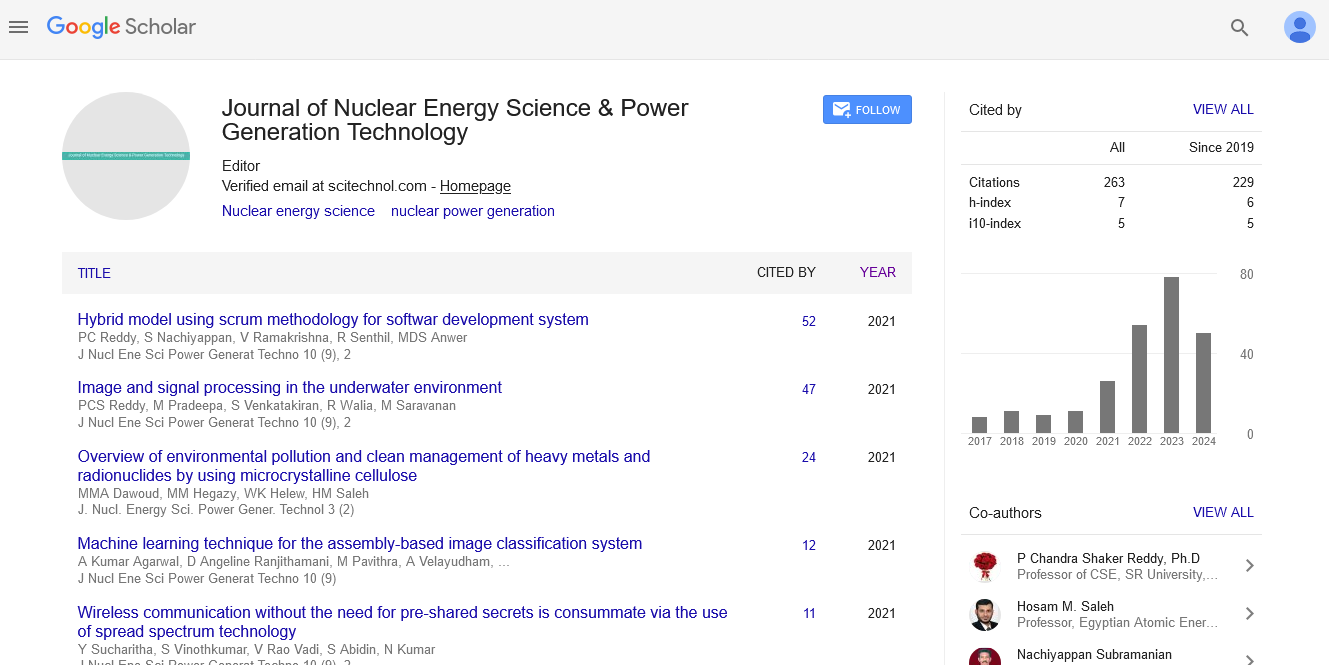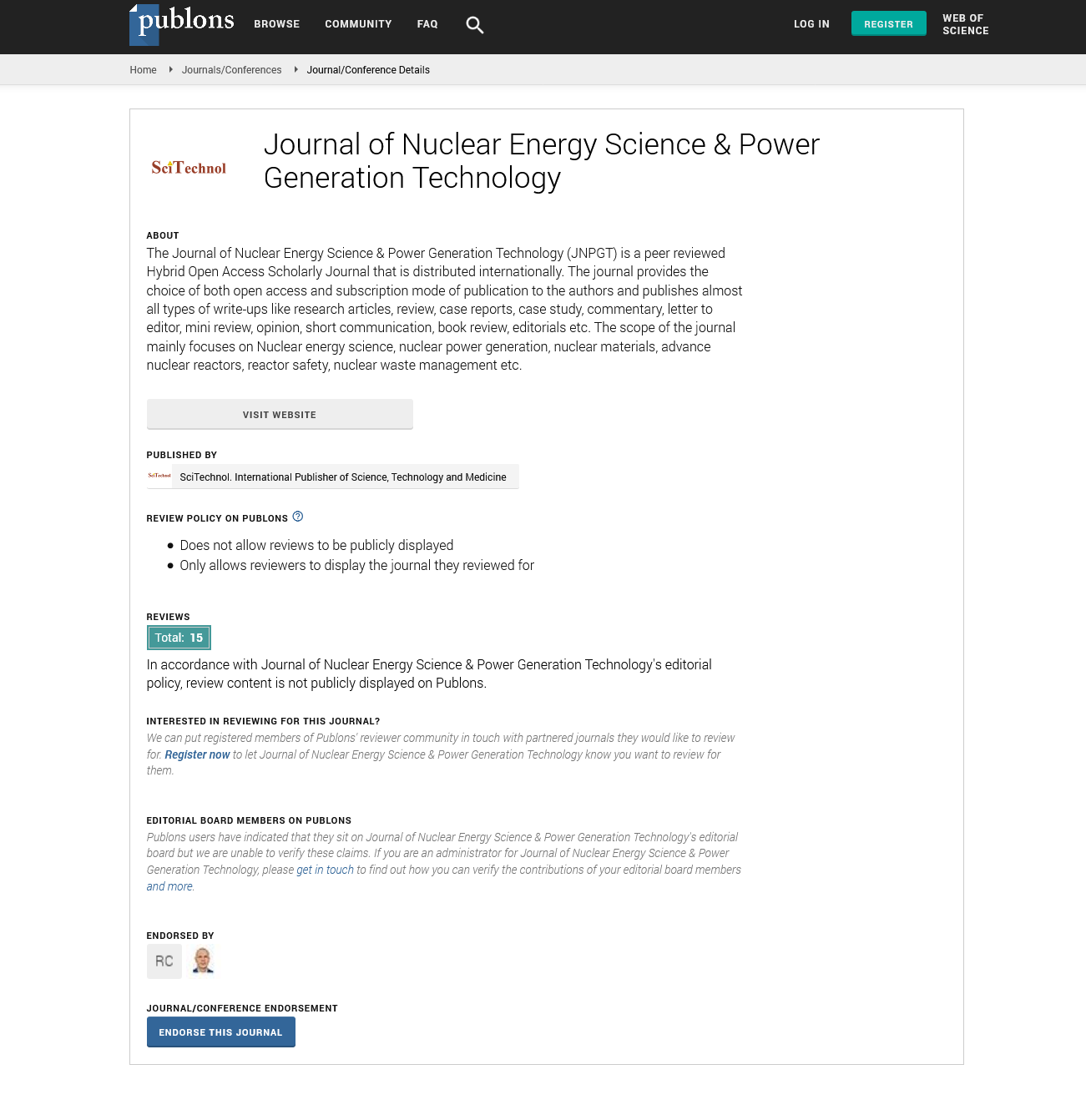Application of laser-induced breakdown spectroscopy (LIBS) on oilfield scales- A comparative study
G Bassioni, M A Harith and A H Galmed
Faculty of Engineering, Ain Shams University, Cairo, Egypt
National Institute of Laser Enhanced Science, Cairo University Giza, Egypt
: J Nucl Ene Sci Power Generat Technol
Abstract
In oil and gas ï¬Âelds, scales are a conglomeration of different compounds of inorganic and organic nature. Scales, if not handled properly, may result in signiï¬Âcant production losses. It is necessary to continuously update scale-management strategies for the protection and maintenance of the system to extend the ï¬Âeld’s lifetime. During oilï¬Âeld scale cleanup, accumulated naturally occurring radioactive materials (NORMs) at concentrations greater than the permissible health levels can be retrieved. Accumulated radioactive materials concentrate in tubing and surface equipment, and workers at equipment-cleaning facilities and NORMs disposal facilities are the population most at risk for exposure to NORM radiation. Results of proper NORM assessment can be used to assess the respective hazard on workers in the ï¬Âeld and represent a basis for revisiting current engineering practices [1]. Generally, knowledge of trace metals in organic and inorganic scales could play a significant role in providing useful information on mechanistic and migratory features [2-4]. These metals originate directly from interaction of oils and formation water with source-rock, mineral matter, and production water. Suitable samples were subjected to high performance laser depth profiling and metals found were recorded [5]. This study shows in a systematic way the use of LIBS technique to confirm ICP-MS findings as well as to find correlations between radioactivity, deposition tendency and the elements distribution in the samples.
Biography
Ghada Bassioni, Ph.D. (Dr. rer. nat.), 2004, Technical University Munich, Germany. She is a Professor and the Head of the Chemistry Division at the Faculty of Engineering, Ain Shams University in Cairo and is a member of the Egyptian National Committee for Pure and Applied Chemistry. She is an international project officer at the Science and Technology Development Fund (STDF), Egyptian Ministry of Scientific Research and has been a member of the Global Young Academy from 2013-2018. She has over 60 scientific publications in peer-reviewed journals and conference proceedings and has been recognized with several national (like the Egyptian State Incentive Award in Chemistry, 2013), regional (like the LEWA Leadership Excellence for Women award, 2013) and international awards (like the Young Scientist Award at the World Economic Forum in Dalian, 2013) and was selected as an academic visitor and panelist at the Nobel Laureates meetings in Lindau, Germany, in 2012 and 2014, respectively. In 2016, she has been awarded the Next Einstein and the Fulbright fellowships as well as the L.A.B. fellowship of three organizations: Nobel Laureate Meetings in Lindau, the European Forum in Alpbach and the Falling Walls in Berlin.
E-mail: ghada_bassioni@eng.asu.edu.eg
 Spanish
Spanish  Chinese
Chinese  Russian
Russian  German
German  French
French  Japanese
Japanese  Portuguese
Portuguese  Hindi
Hindi 

